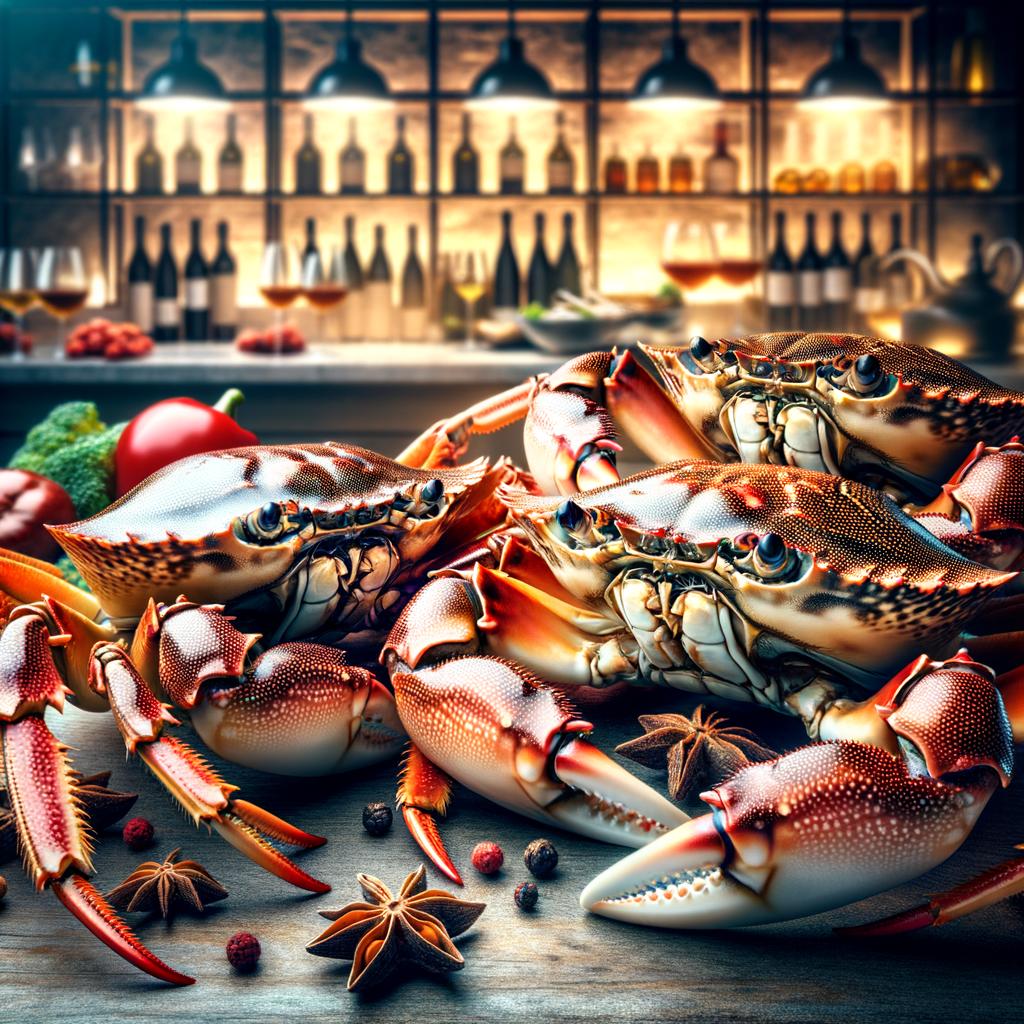Live Crabs

Description Live crabs are a sight to behold. They are fascinating creatures, boasting a hard, protective exoskeleton that ranges in color from a deep, oceanic blue to a vibrant, fiery red. Their bodies are adorned with two large, menacing claws and a multitude of legs, all designed for their survival in the wild. The texture of crab meat is tender, flaky, and succulent, and it holds a delicate, sweet flavor that is often described as a blend between lobster and shrimp. What sets crab apart from its crustacean cousins is its unique sweetness, which is paired with a subtle brininess that perfectly captures the essence of the sea.
Primary Uses Crabs are a culinary delight and are utilized in a myriad of dishes across different cuisines. In the American South, they are a staple in seafood boils and crab cakes. In Asian cuisine, they are often stir-fried with a medley of spices or steamed to retain their natural sweetness. The soft-shelled variety is a delicacy, often deep-fried and eaten whole. Beyond the culinary realm, crabs have been used in traditional medicine to treat ailments such as poor circulation and impotence. The shells, in particular, have been used in the creation of chitosan, a type of biodegradable plastic.
History The history of crab consumption can be traced back to prehistoric times, with archaeological evidence of crab pots from Native American tribes. The romantic tale of the crab begins with ancient Greek mythology, where a crab was placed in the sky by Hera, forming the Cancer constellation. Over time, crab fishing has evolved from a subsistence activity to a commercial industry, with crabs being a prized catch for their sweet meat. The soft-shell crab industry in Maryland, USA, is particularly interesting, with a tradition of "crab molting" where crabs are caught just before they shed their old shell, creating a unique, soft-shelled delicacy.
Nutritional Information Crabs are a powerhouse of nutrition. They are rich in high-quality protein and essential amino acids. They are also a good source of vitamins, particularly Vitamin B12, which is crucial for brain health. Moreover, they contain trace minerals like zinc, copper, and selenium, which act as antioxidants. However, it's worth noting that crabs also have high cholesterol content, so they should be consumed in moderation by individuals with heart conditions. Compared to other shellfish like shrimp, crabs have a lower calorie count and higher protein content, making them a healthier choice for seafood lovers.

